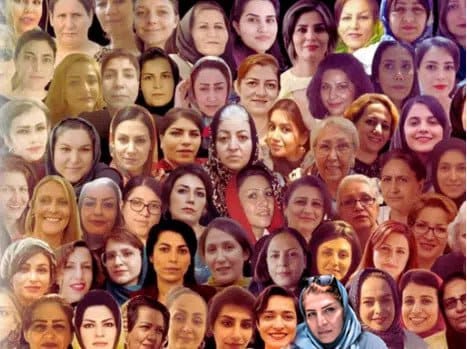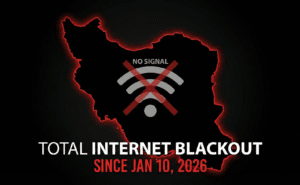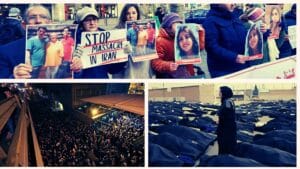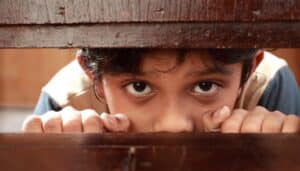Qarchak Prison – A Living Hell on Earth
Qarchak Prison in Varamin, south of Tehran, is one of the most infamous prisons in Iran. Originally a poultry farm and later converted into a camp for drug addicts, it was turned into a women’s detention facility without basic infrastructure. Over the years, Qarchak has become synonymous with systematic abuse, overcrowding, disease, and death.
Human rights organizations and reports from former detainees have documented the following conditions inside Qarchak:
- Overcrowding: Prisoners crammed into large halls that resemble converted basketball courts, with no beds, insufficient ventilation, and lack of natural light. Many women sleep directly on the floor.
- Lack of clean water and food: Drinking water is often contaminated; food is scarce and of extremely poor quality.
- Medical neglect: Detainees suffering from chronic illnesses or urgent medical conditions are denied treatment. Prison authorities use lack of care as a form of punishment.
- Sanitation crisis: Only a few toilets and showers are available for dozens of women. Sewage often overflows into cells. Insects and rodents infest the prison.
- Heat and electricity blackouts: During the summer of 2025, women endured long hours without electricity and ventilation, leaving cells suffocating under extreme heat.
- Disease outbreaks: A viral outbreak in August 2025 left many prisoners with bone pain, respiratory issues, and even temporary voice loss. No medical assistance was provided.
- Psychological and physical violence: Guards often use intimidation, humiliation, and physical abuse to control prisoners. Political detainees are frequently placed alongside individuals charged with violent crimes, creating constant danger.
Former hostage and academic Kylie Moore-Gilbert, once held in Qarchak, described the facility as “unfit for human habitation.” International observers have repeatedly condemned the prison as a site of torture, starvation, and deliberate dehumanization.
The Current Crisis – Transfers After the Evin Prison Strike
On June 23, 2025, Israel launched a missile strike on Evin Prison in Tehran during the escalation of conflict. The strike killed dozens of inmates, prison staff, and family members. Survivors described it as a “slow death” unfolding in the chaos of war.
Instead of protecting the remaining prisoners, the Iranian regime exploited the crisis. In the days following the strike, political detainees—especially women—were secretly transferred to Qarchak Prison and Fashafouyeh (Tehran Grand Prison). Families were cut off, communications severed, and locations concealed.
Among these transfers were at least 62 women political prisoners, moved from Evin into Qarchak under conditions of secrecy. These women are now in greater peril than ever, locked away in an institution notorious for cruelty. International media, including The Guardian and The Wall Street Journal, have raised alarms over the systematic crackdown on political prisoners in the aftermath of the war.
Aida Najaflu, a converted Christian wrote In a short message smuggled from detention, Aida said: “We are in pain… abandoned and powerless.”
Other Women in Peril
The 62 women include well-known activists as well as countless lesser-known detainees. Among them:
- Golrokh– Writer and women’s rights activist, repeatedly jailed for peaceful advocacy.
- Maryam Akbari– Imprisoned since 2009, denied furlough, her siblings executed in the 1988 massacre.
- Varisheh– Kurdish activist, persecuted for her ethnic and political identity.
- Pakhshan– Kurdish women’s rights defender, long targeted by the regime.
These women are leaders, writers, mothers, and defenders of justice. Yet in Qarchak they are stripped of dignity, isolated from families, and deprived of basic rights.
Why We Need Urgent Support
Verein Welle has been at the forefront of documenting, exposing, and campaigning for political prisoners in Iran. But the scale of this crisis requires immediate financial resources to:
- Document testimonies from families and survivors, ensuring the world knows the truth.
- Raise awareness through urgent media campaigns, reports, and petitions.
- Provide legal support by engaging international courts, the UN Fact-Finding Mission, and human rights mechanisms.
- Support families with emergency aid, including food, medicine, and legal costs.
- Prevent executions and enforced disappearances by keeping global attention focused on the plight of these women.
Every donation, no matter the size, directly contributes to saving lives and breaking the silence.
Our Immediate Demands
We call for:
- Immediate UN intervention at Qarchak Prison and other facilities.
- Transparency: Publication of a full, verified list of all 62 women and their current conditions.
- Medical care: Emergency treatment for prisoners with chronic illnesses and urgent needs.
- Access: Unrestricted communication with families and lawyers.
- Protection and release: International pressure for the unconditional release of women political prisoners.
- Accountability: Legal action against Iranian officials for torture, enforced disappearances, and crimes against humanity.
How You Can Help
You can make a difference:
- Donate today: Your support allows us to act quickly and effectively.
- Share their stories: Use your voice to break the silence surrounding Qarchak.
- Join campaigns: Participate in global petitions, advocacy events, and solidarity actions.
- Support families: Help us provide direct assistance to those left behind.
Silence empowers their oppressors. Your solidarity, your donation, your voice—can save lives.
Together, we can stop another atrocity before it is too late.




